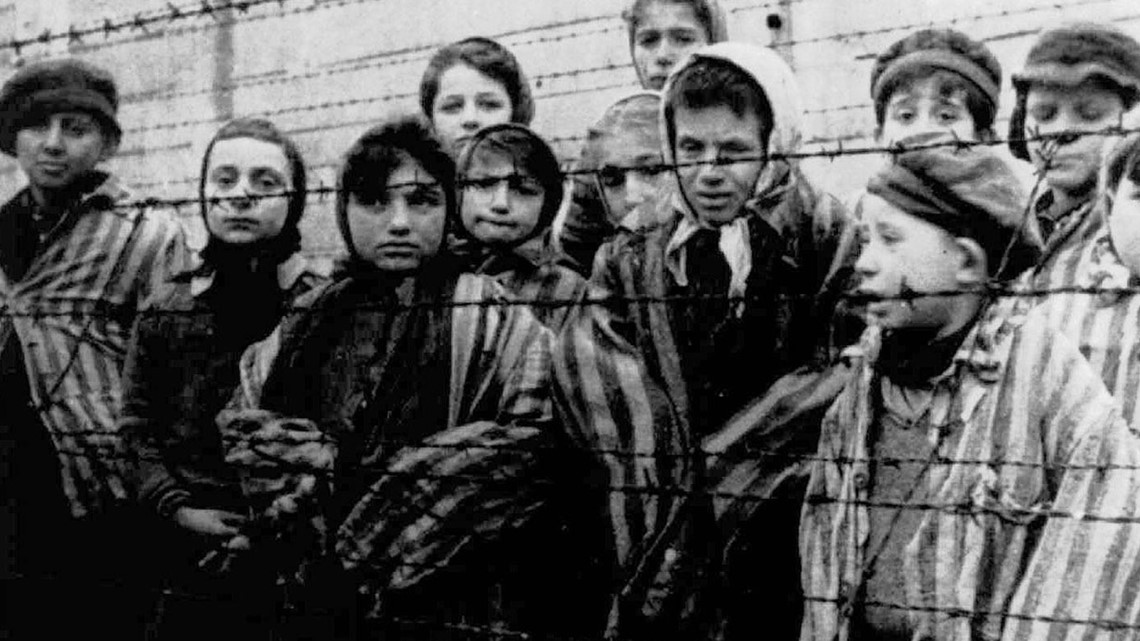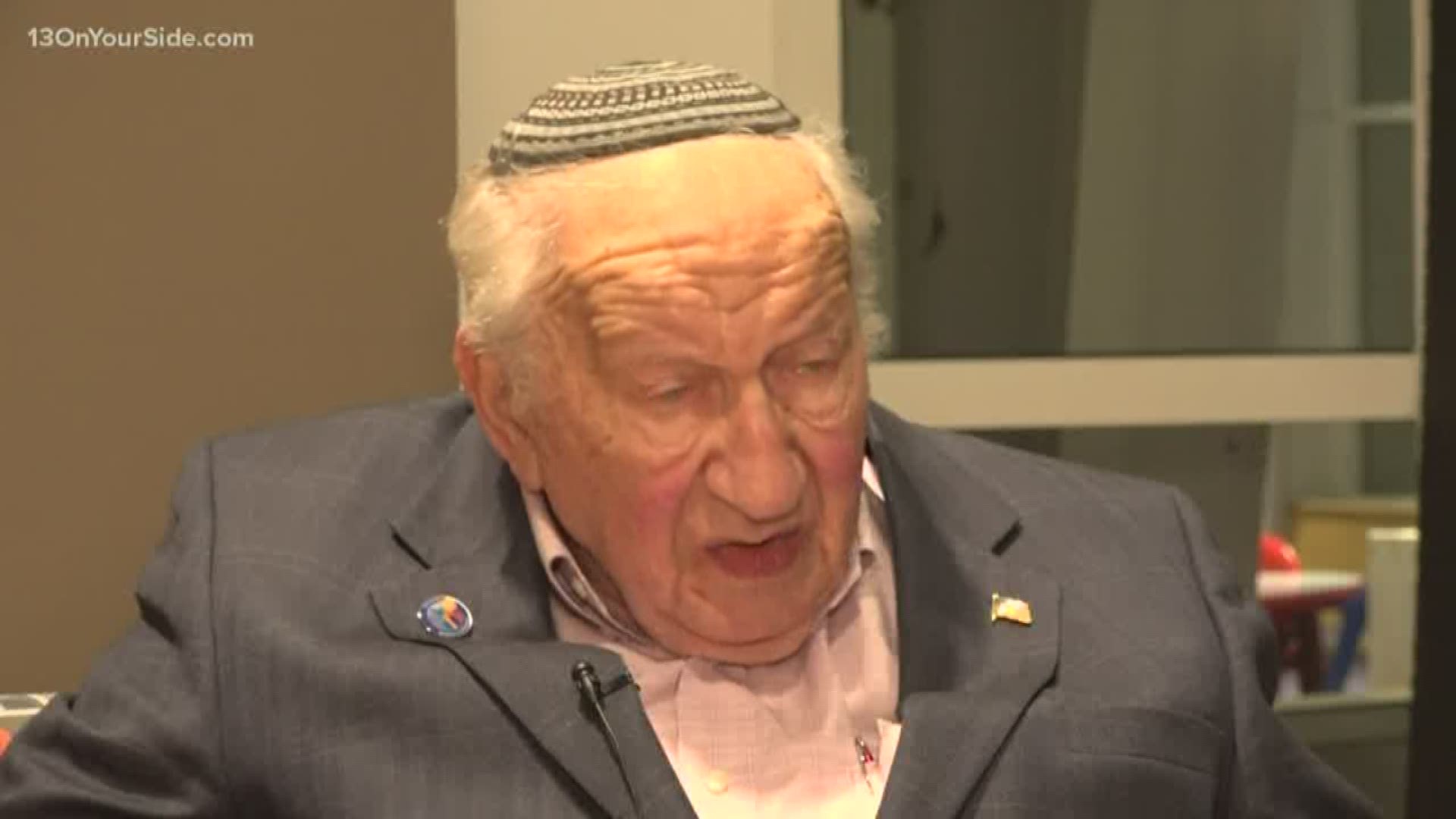WYOMING, Michigan — This month marks the 81st anniversary of one of the most significant events leading up to the Holocaust. A Michigan man was there for it all.
91-year-old Martin Lowenberg spoke to a capacity crowd at the Kent District Library in Wyoming. We got to talk to him exclusively before the event started about his life and the atrocity that changed everything.
Lowenberg was born in 1928. He grew up in the small community of Schenklengsfeld, in the state of Hesse, Germany. He remembers the anti-semitism in the days following Adolf Hitler's rise to power in 1933.
"It had already started when I was five or six years old, when they destroyed our house. We were homeless. Fortunately, my father was one of seven siblings and of course, my aunts and uncles gave us shelter."
Lowenberg lived with relatives until 1938 when the Nazi regime took it away.
"We were no longer able to enjoy the luxury of our own house, and as a matter of fact, we had to move to another city."
That city was Fulda. It was nearby and had a large Jewish population. Many people there had fled their hometowns.
"Our villages were already, they called it, 'cleansed' of Jews. There were no more Jews living in those villages where people had been living for many, many years."
Jewish people were seeing things get worse for them, but many of them couldn't leave because they didn't have the money or passports to do so. There were also other factors.
"At that time everything was very primitive," Lowenberg said. "You couldn't go to the airport or do anything like that."
Some were able to leave, including three of Lowenberg's older siblings. Two of them were sponsored by youth groups and made it to Palestine. One of them, who is still alive today, was able to be sponsored by someone in the U.S.
The rest of the family had to stay behind and they eventually ended up prisoners of the Nazi regime.
"My parents had twin boys who were nine years old in 1941 and of course they, with my parents, were the victims of the crematorium in Auschwitz. Their lives were destroyed in fire. First, they were gassed and then they were burned," Lowenberg said.


"11 million people were killed but 6 million Jewish people were killed because of hate. People hate. And why do they hate? Because of gossip, because of anything, but they don't realize what hate really means, and hate hurts."
Lowenberg spent his teenage years as a slave worker at five labor camps in Germany and Latvia.
By 1945 he was liberated, and so was his sister Eva, who had spent time in a women's concentration camp. They were both able to make it to the U.S. after their older sister sponsored them. Lowenberg said he's always felt accepted in the U.S.
"This is still the greatest country in the world and a lot of people don't realize that it is. We have so much freedom. Anybody can enjoy life to the fullest extent, and therefore, we are very, very lucky people," he said.
But Lowenberg said he does still encounter anti-Semitism and he's responding by spreading his message of peace.
"We have to live together as human beings, as good citizens of Grand Rapids, as good citizens of Holland," he said.
"Hate hurts, but love heals, and that is the main lesson I will say because people should enjoy life. And no matter what religion, or if people don't believe in religion, it means people should enjoy life and love thy neighbor as you love yourself."
See the full interview here:
More stories on 13 ON YOUR SIDE:
►Make it easy to keep up to date with more stories like this. Download the 13 ON YOUR SIDE app now.
Have a news tip? Email news@13onyourside.com, visit our Facebook page or Twitter. Subscribe to our YouTube channel.

